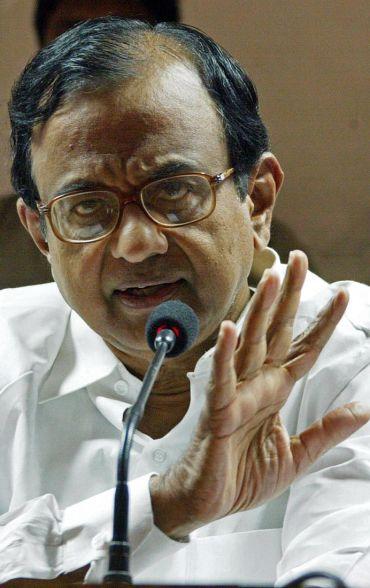
Chidambaram's growing power
M K Narayanan's departure from the post of National Security Advisor was a strategic victory for Home Minister Chidambaram, who has tussled with the former over bureaucratic reforms that he viewed as critical in the wake of the 26/11 Mumbai attacks, then US Ambassador Timothy Roemer wrote in a cable dated January 22, 2010.
Following up on Political Counselor Uzra Zeya's coversation with Congress leader Divijay singh, Roemer wrote: "Congress Party General Secretary and Gandhi family insider Digvijay Singh told PolCouns (Zeya) that the Intelligence Bureau, Research and Analysis Wing, and the Central Bureau of Investigation all currently report to the PMO through Narayanan. Since his visit to the National Counter-Terrorism Centre in Washington in November 2009, Chidambaram has made several speeches and press statements expressing his desire to consolidate all intelligence, internal security, and counterterrorism functions under a single entity that reports to him, rather than to the NSA."
"Narayanan's departure and replacement by a career diplomat with exemplary diplomatic credentials, but lacking background in internal security, comports with Minister Chidambaram's reform agenda."
"Narayanan's departure and Menon's appointment are further signals of Home Minister Chidambaram's growing power relative to other foreign policy officials. In late 2009, the Home Ministry unilaterally announced changes to tourist visa requirements, usually the domain of the Ministry of External Affairs, which left MEA scrambling to cope with the ambiguous new regulations and media fall-out. Minister Chidambaram appears to be backed by the Prime Minister, despite lacking a strong electoral base."
"However, Chidambaram's management style and rapid ascent to power has rubbed many within his own party the wrong way. With media reporting that Vice President Ansari advocates Parliamentary oversight on intelligence (rather than the Home Ministry), Chidambaram still has challenges to overcome in implementing his reform agenda."
Click on NEXT to read other CABLES...
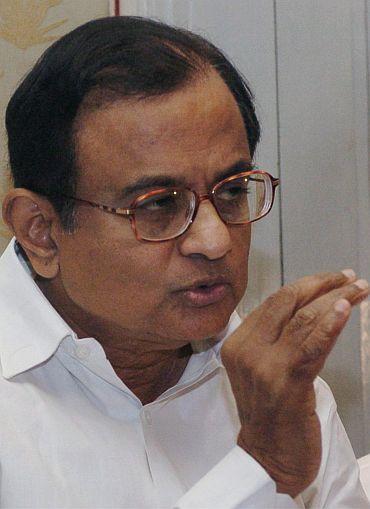

Coinciding with late US ambassador Richard Holbrooke's visit to Saudi Arabia in February 2010, the US embassy in Riyadh had told the diplomat that terrorist funding emanating from the country remained a serious concern
In a cable dated February 2, 2010, Ambassador James B Smith said: "Available intelligence reflects that the Kingdom remains an important fundraising locale-especially during the Hajj and Ramadan-for the Taliban, LeT, and other terrorist groups based in Afghanistan and Pakistan. The Saudi Ministry of Interior remains almost completely dependent on the CIA to provide analytic support and direction for its counterterrorism operations. As such, our success against terrorist financing in the Kingdom remains directly tied to our ability to provide actionable intelligence to our Saudi counterparts."
The cable also states that the Saudis generally agreed that there was a need to deny terrorists safehavens in Pakistan, but questioned whether the methods that US outlined would be effective.
"Despite tense relations with the Zardari government, close military and intelligence cooperation continues between Saudi Arabia and Pakistan. The Saudis believe opposition leader Nawaz Sharif can play a "great role" in working with tribal chiefs and that "money is better than bullets" in the fight against the Taliban. They have started to fulfill their pledge from the Tokyo donor's conference (over half of the $700 million pledged has been disbursed) and have expressed a willingness to continue with financial support for a stable Pakistan. Saudi interlocutors stress the importance of remembering that Pakistan remains pre-occupied with issues on its Indian border, coloring its ability to deal with the Taliban."
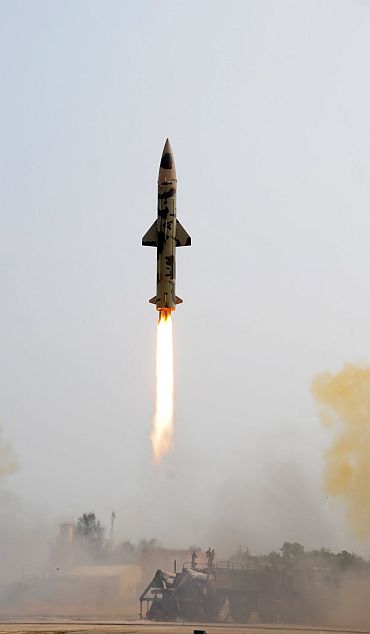
In a cable dated February 16, 2010, US Ambassador to India Tim Roemer stated that Indian Army's "Cold Start Doctrine" is a mixture of myth and reality.
"It has never been and may never be put to use on a battlefield because of substantial and serious resource constraints, but it is a developed operational attack plan announced in 2004 and intended to be taken off the shelf and implemented within a 72-hour period during a crisis."
"Cold Start is not a plan for a comprehensive invasion and occupation of Pakistan. Instead, it calls for a rapid, time- and distance-limited penetration into Pakistani territory with the goal of quickly punishing Pakistan, possibly in response to a Pakistan-linked terrorist attack in India, without threatening the survival of the Pakistani state or provoking a nuclear response."
Stating that the doctrine didn't find favour with the United Progressive Alliance government, Ambassador Reomer said: "The government of Prime Minister Manmohan Singh has not publicly embraced Cold Start and GOI uncertainty over Pakistani nuclear restraint may inhibit future implementation by any government."
"If the GOI were to implement Cold Start given present Indian military capabilities, it is the collective judgment of the Mission that India would encounter mixed results. The GOI failed to implement Cold Start in the wake of the audacious November 2008 Pakistan-linked terror attack in Mumbai, which calls into question the willingness of the GOI to implement Cold Start in any form and thus roll the nuclear dice."
"At the same time, the existence of the plan reassures the Indian public and may provide some limited deterrent effect on Pakistan. Taken together, these factors underline that the value of the doctrine to the GOI may lie more in the plan's existence than in any real world application."

On February 11, 2010, US Counsellor Uzra Zeya sent a cable to Washington stating that prominent members of the Central Tibetan Administration, including Speaker of Parliament Penpa Tsering and Minister of the Department of Information and International Relations Kesang Takla, had expressed frustration with what they termed as the ''arrogant'' display by the Chinese officials during talks.
The cable said: "PolOff (Political officer) visited Dharamsala February 3-7 to meet a cross section of the Tibetan community upon the conclusion of the ninth round of dialogue in Beijing between the Tibetan government-in-exile, known as the Central Tibetan Administration (CTA), and Chinese officials."
"During meetings with members of CTA's Parliament, the NGO community, journalists and activists, Poloff detected growing Tibetan frustrations over the lack of progress through the dialogue and with the Middle Way approach."
"Many interlocutors pointed to the widely-anticipated meeting between the Dalai Lama and President Barack Obama with excitement but also expected few, if any, tangible outcomes. They argued that the international community, particularly the United States and India, needs to engage more on the Tibetan movement to curb rising frustration after over 50 years in exile."

Ahead of the visit of Farah Pandith, US President Barack Obama's special representative to Muslim communities, to India in February 2010, the US embassy in New Delhi informed her that the actual number of Muslims is substantially higher than the figure quoted in the national census.
Referring to various 'contacts' in India, the cable says that most of them believe that the official figure ( Census 2001) of over 138 million Muslims in India is "under representative" as actual number is "substantially higher" -- closer to 160 to 180 million.
Taking sympathetic views of Indian Muslims for their 'liberal' approach, the cable, originated from American embassy in New Delhi in February last year, says that majority of the Muslims live in a very poor condition despite some of the millionaires from the community, like Azim Premji, influence Indian market.
It says: "Iconic celebrities such as Bollywood actor Shah Rukh Khan attract legions of fans, while millions of Muslims languish in poverty. Since Independence, three Muslims have been appointed as President, but Muslims are grossly under-represented in Parliament and other elected bodies".
The US embassy cable also refers to the Rajinder Sachar Committee report which in 2006 revealed that Muslims in general fare worse in economic terms than India's Dalits.
"These seeming contradictions reflect overall socioeconomic trends in India: a tiny percentage of Muslims thrive, while the vast majority struggles to support themselves".

The army calls the shots in Pakistan, sidelining President Asif Ali Zardari. That's what late Richard Holbrooke, President Barack Obama's special envoy for Afghanistan and Pakistan told Indian External Affairs Minister SM Krishna when he called on the latter in New Delhi on February 10, 2010.
The minutes of the meeting, released by WikiLeaks, said: "Holbrooke assured Krishna that the US was deeply disturbed by the Government of Pakistan's ties with the Lashkar-e-Tayiba and described US efforts to press Pakistan to take action against the group."
"He assessed that the civilian government in Pakistan had a limited capacity to take such steps. The Army was the key decision maker while President Zardari was increasingly sidelined and the GOP was struggling with a failing economy."
"The military was not likely at this time to resume full control, but would assert its views on relations with India and Afghanistan. Holbrooke cited the example of India's exclusion from an Afghan conference in Istanbul -- despite efforts by Holbrooke and Secretary Clinton -- as an example of the military's weight in decision making."
"In his view, a paralysed Pakistani government could not move forward on tough decisions. Until the political process in Pakistan settled down, little progress could be made. Krishna said India was also getting a pessimistic picture of what was taking place in Pakistan which was both confusing and disturbing."
While the US had its own difficult relationship with Pakistan, Holbrooke noted, "it was neither in the US nor India's interest that the US abandon its ties to Islamabad."

Intelligence shared by the United States saved precious lives on February 13, 2010 bombings in Pune, which killed 17 people and injured 60.
In a cable, dated February 25, 2010, then US Ambassador Tim Roemer wrote about a meeting between National Security Advisor Shivshankar Menon and Senator Claire McCaskill stating, "Menon credited intelligence shared by the United States with helping to protect targets in the vicinity of the February 13 Pune bombing, leaving the terrorists no alternative but to go after a soft target instead."
"The bombing was "a shock, yet not shocking," considering India's familiar experience as a terrorist target. Three groups had claimed responsibility, but the government had not come to any conclusions about the perpetrators. In India's long history of dealing with terrorism, Menon said, "Most attacks lead back to Pakistan."
"Menon lamented that Pakistan had shown itself to be 'unable or unwilling to wean itself off from terror as an instrument of state policy'. He alluded to evidence that serving Pakistani officials were involved in the 26/11 attacks."
"Menon shared his perspective that 'We are dealing with many Pakistans, so we need to run many Pakistan policies at the same time'. He stressed that even after the Mumbai attacks India did not sever trade or travel ties with Pakistan because these elements of the relationship were important to achieving an eventual peace with Pakistan. As a 'true democracy', public opinion defined the limits of India's forebearance, but Menon stressed that India did not wish to play into the hands of the terrorists by shunning dialogue."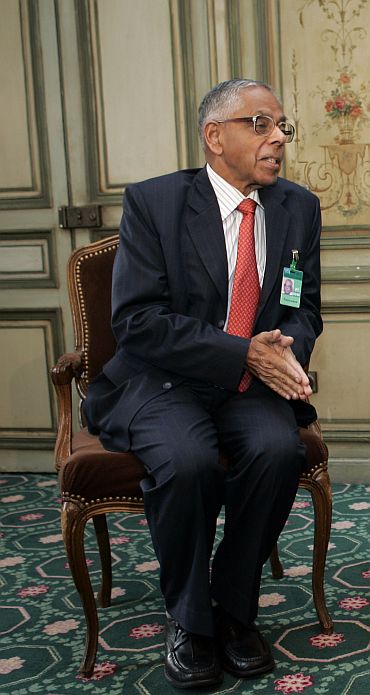
During a late afternoon meeting with US Ambassador Timothy Roemer on January 15, 2010, outgoing National Security Advisor MK Narayanan was asked if his rivalry with Home Minister Chidambaram had contributed to his departure.
His response was that the Home Minister 'needed someone to check him and put a bit in his mouth.'
A leaked diplomatic cable noted: "Speculation had run rampant in the press over the past two days that Narayanan was on his way out, either by choice or with an assist. Some pointed to Narayanan's age and the demands of the job to suggest he jumped rather than being pushed. Others pointed to his troubled relationship with Home Minister Chidambaram as reason to believe the move was not entirely voluntary."
"The relationship between the two men has been contentious since shortly after the November 26, 2008 Mumbai attacks, when Chidambaram took over the portfolio. This was the view of Congress Party General Secretary, Rahul-mentor and Gandhi family insider Digvijay Singh, who told PolCouns earlier this week that if reports of Narayanan's exit were true, he saw two reasons behind it: Narayanan's age; and the turf battle underway between Home Minister Chidambaram and Narayanan over who has primary intelligence and counterterrorism responsibilities."
"According to Digvijay Singh, the Intelligence Bureau, RAW and the CBI all currently report to the PMO and Narayanan. Chidambaram was bent on consolidating all intelligence, internal security and counterterrorism functions in a single entity that reported to him. Narayanan's exit or threat to exit may be part of this bureaucratic battle. A leak to the press from Narayanan's office outlining these differences may have marked the final act in this story."

Professor M Anandakrishnan, the Chairman of the Indian Institute of Technology, Kanpur, told Andrew T Simkin, US Consul General in Chennai, that India's education system is second only to politics as the nation's most corrupt system.
In a cable dated February 24, 2010, Simkins said: "Professor M Anandakrishnan, who is a member of the Tandon task force appointed to suggest reforms in higher education told us of enormous 'under the table' entrance fees (known as 'capitation fees' in local parlance), including charges of between $100,000 and $200,000 USD just for a seat at a post-graduate medical college, paid up front and in cash."
"Anandakrishnan also told us of an instance when an IAS officer served as a vice-chancellor despite lacking any qualifications to do so. He also cited one example of a doctoral programme, which had 110 faculty members (of which only 18 had PhDs) to support 1200 PhD students."
"Dr Anandakrishnan told us that some of these institutions were set up by Congress or allied party (such as the DMK) politicians, and he cited the Rajiv Gandhi Institute in Sriperumbudur and the Bharat University, both in Tamil Nadu, as examples of poorly-run institutions headed by politicians. According to Dr. Anandakrishnan, the task force took its findings to Minister Kapil Sibal, who reported them to PM Singh; PM Singh then asked Sibal to "clean it up."
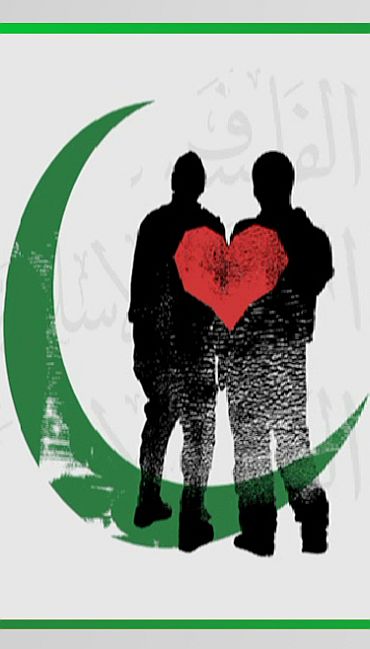
The 'Love Jihad' phenomenon too finds its mention in the US diplomatic cables released by WikiLeaks.
A cable dated February 26, 2010, filed by Andrew T Simkin, US Consul General in Chennai says: "An alleged conspiracy of "foreign-funded" Muslim men attempting to seduce, marry, and convert Hindu and Christian women, has led to state-level investigations and generated widespread suspicions in South India. The media has dubbed the so-called conspiracy a "Love Jihad," and top politicians in Karnataka and Kerala have found themselves forced to confront the issue publicly."
"Both Hindu and Christian groups have expressed fear and outrage at the 'plot', while Muslim groups have felt the need to defend their co-religionists against the conspiracy theorists. Ongoing police investigations in South India have cast doubt on the existence of a 'Love Jihad', but the recurring assertion of its existence despite contrary evidence demonstrates the suspicion and intolerance that exist among some of the religious communities in the region."
"The 'Love Jihad' controversy has its origins in the coastal region of southern Karnataka and northern Kerala, where forms of religious and communal violence occur with unfortunate regularity"
"While it may be easy for outsiders to ridicule the 'Love Jihad' allegations, the fact that they have gained so much traction in the popular imagination illuminates the very real paranoia and social tensions that sometimes exist in relationships among Muslims, Hindus, and Christians in the region."
"In some areas, it would be hugely embarrassing for Hindu parents to reveal to friends and relatives that their daughter has fallen for a Muslim man, and the hypothesised existence of a nefarious, foreign-funded organization that targets innocent Hindu women likely makes it easier for the parents to explain to themselves and others what has happened."
"The 'Love Jihad' brouhaha also illustrates the perceived threat that many Hindus in the region feel from 'forced conversions', and the general encroachment of 'alien' religious forces into what they see as a Hindu religious space. These perceptions -- and the related tensions -- will likely continue regardless of the content of Karnataka's official report on the alleged 'Love Jihad'."
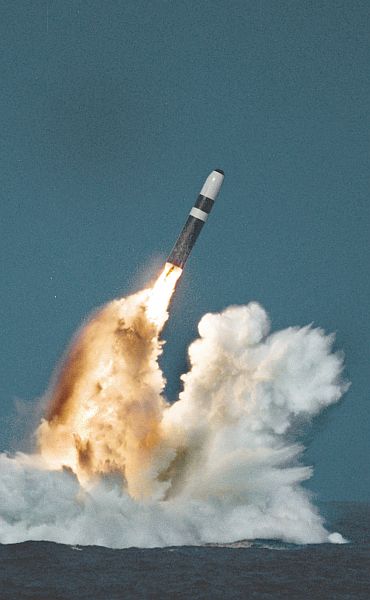
Islamabad's perceived preferential treatment given to India has threatened to derail the fissile material cut-off treaty negotiations.
A cable from the US mission in Geneva on February 10, 2010 noted: "The outlook for launching Fissile Material Cut-Off Treaty Negotiations, one of the President's (Barack Obama) signature goals from his Prague agenda, has dimmed considerably since last year's historic agreement on a Programme of Work at the Conference on Disarmament."
"Pakistan, presumably motivated by a sense of vulnerability and grievance over perceived preferential treatment given to India, has continued to be the sole obstacle to moving forward although it continues to cloak its objections in procedural arguments."
"Pressure from other parties to move Pakistan back to consensus has been insufficient, and more worryingly, appears to be diminishing, particularly among [Non-Aligned Movement] ranks. . . . Member states continue to look to the US for leadership on this initiative, particularly given the common assessment that the Pakistani military remain the key decision maker and that the US has unique access"

Did authorities in Guangzhou province of China treat Indra Mani Pandey, Consul General of India, indifferently? Yes, according to a leaked cable issued by the American Consulate in Guangzhou.
The cable dated February 10, 2010, noted: "During a brief introductory call, Indian Consul General Indra Mani Pandey expressed surprise and dismay over the lack of access to senior local government and communist party leadership. Shortly after arriving on January 20, he placed requests to meet Guangdong Party Secretary Wang Yang as well as Governor Huang Huahua."
"He opined that Guangdong's Foreign Affairs Office had yet to respond to those requests or even offer a meeting with Vice Governor. Pandey said he doubted the delays were due to either Chinese New Year holidays or recent border dust ups between India and China, assigning the blame to indifference and bureaucracy. He observed that China routinely took the US and India to task over the Dalai Lama."

In just over a year of operation, the anti-human trafficking court in Mumbai has disposed of a large backlog of trafficking cases, and improved the conviction rate for traffickers, says a leaked cable dated February 10, 2010.
The cable issued by the American Consulate noted: "In 2009, the court adjudicated 438 cases, and recorded convictions in 81 cases, with more than one defendant convicted in most cases."
"The court also ordered the closure of 11 brothels. The transfer of many of Mumbai's trafficking cases to a single court has also helped identify trafficking patterns and repeat offenders, providing key analysis for law enforcement agencies."
"India would benefit from more urban anti-trafficking courts like Mumbai's which has made an impressive impact on enforcing anti-trafficking legislation in one of India's biggest cities."
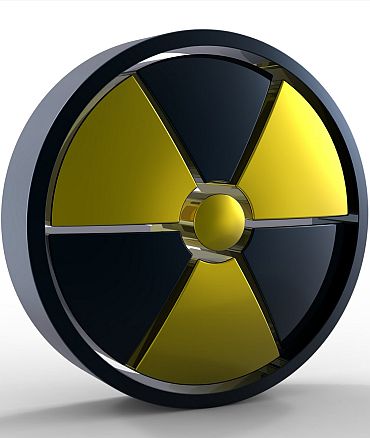
Ambassador Grigoriy Berdennikov, Russian Sherpa for the Nuclear Security Summit on February 9, 2010, had sought to exclude India and Pakistan from the meet, lamenting that involving the non-NPT signatories will lead to an agreed text, which is "devoid of important things."
A cable issued by the American Embassy in Moscow noted, "Berdennikov stressed that it is difficult involve non-NPT signatories India and Pakistan in a non-proliferation forum based on the Non-Proliferation Treaty. He clarified that although the Summit is not billed as being NPT-based, for all intents and purposes it is. He added that it is important for non-NPT signatories' voices to be heard. But including them in this Summit leads to very bland text, 'devoid of important things'."
"Given that India and Pakistan will want to 'bargain until the end', Berdennikov emphasized that the GOR's primary goal is for the Nuclear Security Summit to be 'as ruly as possible'. He said that the resulting documents may be based on a lowest common denominator which is very low indeed, but the LCD is still desirable as it is better than nothing, and far better than a fight. Briefly animated, he stated that a fight in Washington should be avoided at all costs as that would be a "major blow" to the non-proliferation cause."
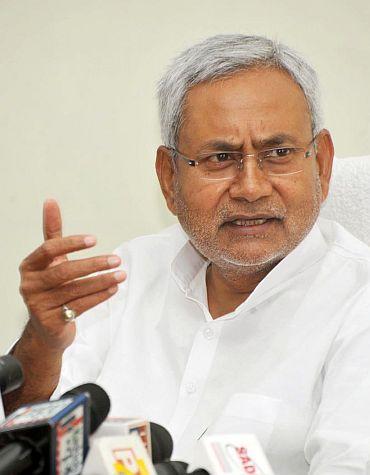
Nitish Kumar's Bihar is qualitatively different from that of his predecessor Lalu Yadav Prasad (Rashtriya Janata Dal), who had, with his wife, ruled the state from 1990-2005, said a cable issued by the American Consulate in Kolkata following the then US Ambassador to India Timothy Roemer's visit to Bihar in February 2010.
The cable noted: "While it is still some time before industry takes root in this agricultural state, there appear to be commercial opportunities in the near term relating to the large funding that is earmarked for building infrastructure. The infrastructure, in turn, will help improve the business climate for future industrial development. In order to continue with his programme of 'development with justice', Nitish Kumar has to win a new mandate from the voters this fall."
"Neither Lalu Yadav's RJD nor Sonia Gandhi's Congress are going to give him a free pass, although the current Janata Dal United-Bharatiya Janata Party is well-positioned. Rahul Gandhi had visited Bihar two days before the Ambassador's trip to explore short- and long-term electoral opportunities in this rapidly developing state."
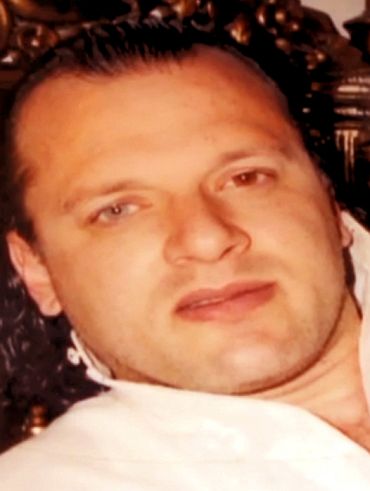
Pakistan told the United States in February 2010 that the statements given by American terror operative David Coleman Headley have little evidentiary value
A cable issued by the American Embassy in Islamabad noted: "In December, an FBI-DOJ team briefed Pakistani officials from the ISI, Ministry of Interior, FIA, IB, and MFA on the David Coleman Headley investigation, providing them with tear-line information on Headley's statements to US authorities. ISI officials said they had very little information to identify the Pakistanis mentioned in the statements."
"They discussed their investigation into First World Immigration Service, a business front used by Headley and his co-conspirators. The ISI said while they would not grant direct FBI access to co-conspirator Major (retd) Abdurrehman Syed, who was in ISI custody, the FBI could submit questions for Syed through the ISI. The FIA and Ministry of Interior informed the FBI that it would be difficult to introduce Headley-related evidence in the government's prosecution of the Mumbai defendants, including because Headley's statements to US authorities would be treated as hearsay with little evidentiary value in court."